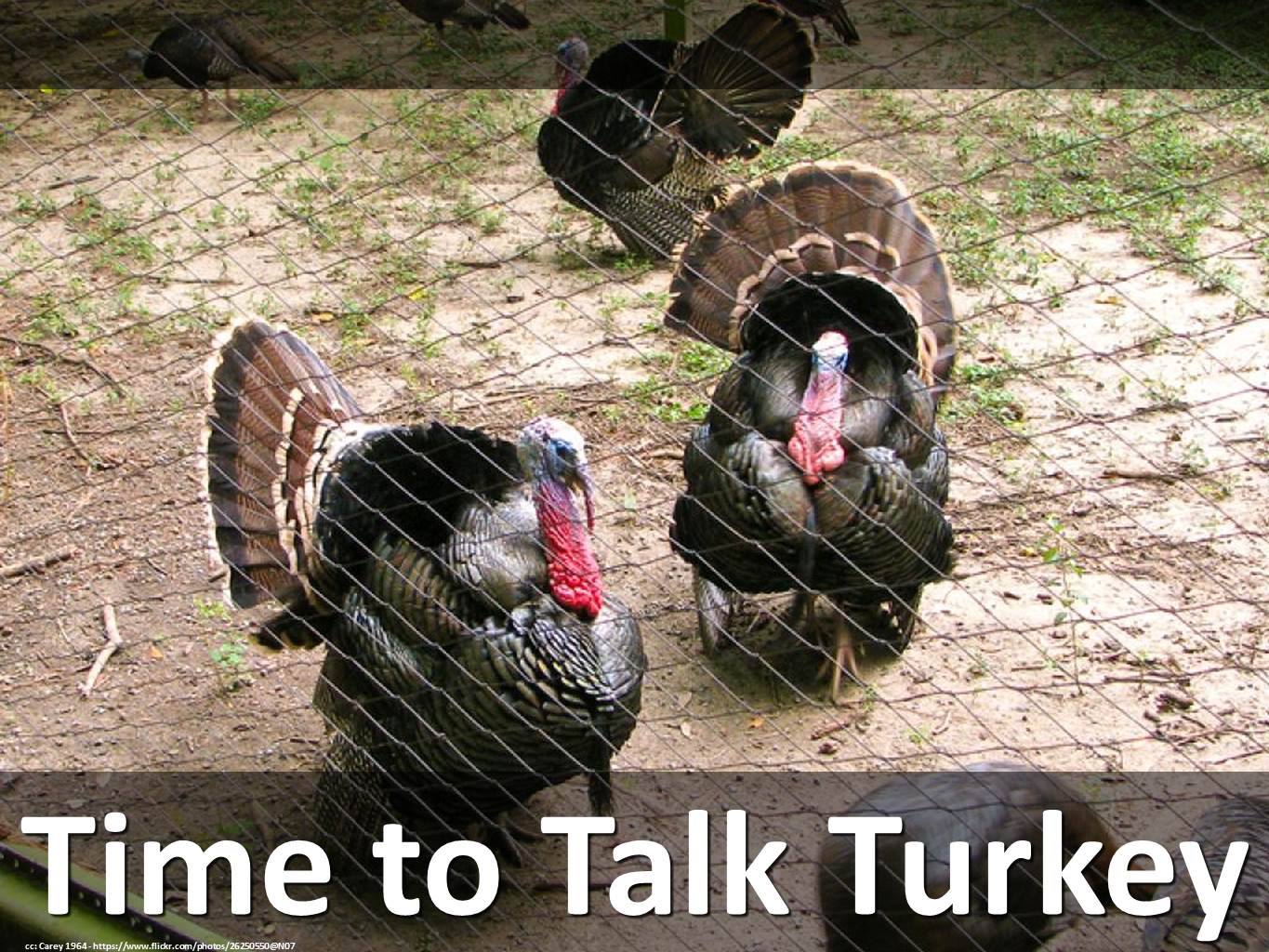Thanksgiving brings to mind images of family and friends gathered together around a festive table.
Most likely, the people sitting around your table, like those around ours, are catching up on what happened since they were together last Thanksgiving. They will be telling stories about what is happening right now, and perhaps reflecting on some special event or person or something they’ve been struggling with over the past year.
A mentoring roundtable is similar to traditional Thanksgiving gatherings in some ways and different in others. It is similar in that it creates an opportunity to share experiences and tell stories. Mentoring program participants sit around a table sharing stories about how their mentoring relationships are going, talking about what they’ve accomplished since they’ve last met, and exchanging best mentoring practices. It differs from traditional Thanksgiving gatherings in that mentors and mentees create their own community where they meet separately without mentoring partners present to openly share and confidentially discuss their mentoring experiences. It also differs in that conversation is led by a facilitator to encourage full and free flowing participation and to ensure that that no one dominates the conversation.
What can you learn from attending a Mentoring Roundtable?
Mentors and mentees always walk away from roundtables with “aha” moments, new insights, learning, and answers to mentoring questions. Here are three learning takeaways we hear from mentors and mentees.
“We are not as far behind as I thought.” In a formal mentoring program, it is common for mentors and mentees to wonder if and how they measuring up against other mentoring pairs. Many fear their progress is lagging behind other mentoring pairs or they assume others sail smoothly while they struggle. When they discover others are facing similar problems and have similar concerns, it is a relief and an impetus to keep moving forward.
“Oh, so that’s what a good goal looks like.” Identifying SMART goals that make a difference in a mentee’s growth and development is one of the most challenging tasks for mentors and mentees face. Creating SMART goals takes time and effort. The mentoring roundtable provides an opportunity for mentors to determine if mentee goals are on track and sufficiently challenging. In the process, they learn about t multiple success strategies they can adapt to support and bolster their mentee’s growth and development. The mentoring roundtable also provides an opportunity for mentees to learn about goals that their peers are working on and to find out how they are handling the challenge of balancing day to day work while pursuing their developmental goals. Listening to others pushes mentees to clarify or expand their own goals.
“Wow, that’s something I never thought of doing.” Participation in a roundtable stretches everyone. Hearing about a successful approach one mentor is successfully using encourages others to adopt new or similar approaches. Mentors who struggle with a specific problem find solutions from coworkers who have already faced the problem and overcome it. Mentees benefit from hearing other mentees talk about strategies they are using to deepen the level of conversation with their mentor or to drive the relationship forward. One mentee’s story about stepping out of their comfort zone can inspire others to do likewise, thus giving them confidence to try something new or to expand mentoring skills.
Talking Turkey
A mentoring roundtable creates a learning community that enables everyone who participates to learn successful strategies and stay on track throughout the lifecycle of a formal mentoring relationship. They provide a comfortable space and place to talk turkey, to speak openly and to enhance everyone’s learning.



